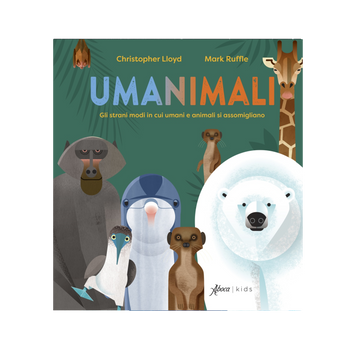You have no items in your shopping cart.
Giungle Giungle
Come le foreste tropicali hanno dato forma al mondo e a noi Come le foreste tropicali hanno dato forma al mondo e a noi
Patrick Roberts Patrick Roberts
€34,00
From the arrival of the first plants on Earth millions of years ago, tropical forests have played a key role in the evolution of the atmosphere, dinosaurs, early mammals, and even our own species.
From the arrival of the first plants on Earth millions of years ago, tropical forests have played a key role in the evolution of the atmosphere, dinosaurs, early mammals, and even our own species.
Availability:
In Stock
Sku: LIBGIUNGLE
ISBN/EAN: 9788855231428
For many of us, tropical forests are the domain of films like Tarzan or Apocalypto and feel far removed from our everyday lives. It is an idea that curiously shapes not only popular belief but also academic thinking. And yet these wonderful verdant expanses influence the Planet’s temperature, create rainfall, clean the air and provide essential food and raw materials. Highlighting startling new evidence garnered from cutting-edge research techniques – from plant genetics to laser scanning from the aircraft – the archaeologist Patrick Roberts shows that our view of humans as ‘savannah specialists’ is wildly wrong, and contrary to common wisdom, tropical forests are not inhospitable environments, but the cradle of civilisation. Human shaping of these environments also has deep historical roots. We can go as far to say that the Anthropocene era began 6,000 years ago in the tropics. Later, European colonialism set off unpreceded exploitation of forestry resources, with merciless deforestation to make way for mines and monoculture plantations, resulting in a devastating impact on soil erosion and millions of humans brutally uprooted from their homes.
From the leech-filled rainforests of Sri Lanka, to the tinder-dry forests of Australia, the misty forests of Mexico, to the teeming Amazon, Patrick Roberts's pioneering work has pursued a revolutionary idea for ten years. In this book, he tells us a brand-new history of the world from the perspective of the tropics to help us understand the crucial but often largely overlooked role of tropical forests in human history and in the way the Earth works: the future of our species is inexorably linked with their imminent destruction; the onus is on us to act now.
Patrick Roberts, (1991) is an archaeologist and researcher at the Max Planck Institute. He is at the forefront of the study of tropical environments. Considering his young age, his output is remarkable and perhaps unprecedented in terms of the number of articles published in major journals such as "Science" and "Nature." He has received numerous awards and his work has been featured on the BBC, Channel 4 and in "The Times." “Giungle” is his first popular book, which is being published in ten countries all over the world. He lives in Jena, Germany.
More on Aboca Edizioni web site
For many of us, tropical forests are the domain of films like Tarzan or Apocalypto and feel far removed from our everyday lives. It is an idea that curiously shapes not only popular belief but also academic thinking. And yet these wonderful verdant expanses influence the Planet’s temperature, create rainfall, clean the air and provide essential food and raw materials. Highlighting startling new evidence garnered from cutting-edge research techniques – from plant genetics to laser scanning from the aircraft – the archaeologist Patrick Roberts shows that our view of humans as ‘savannah specialists’ is wildly wrong, and contrary to common wisdom, tropical forests are not inhospitable environments, but the cradle of civilisation. Human shaping of these environments also has deep historical roots. We can go as far to say that the Anthropocene era began 6,000 years ago in the tropics. Later, European colonialism set off unpreceded exploitation of forestry resources, with merciless deforestation to make way for mines and monoculture plantations, resulting in a devastating impact on soil erosion and millions of humans brutally uprooted from their homes.
From the leech-filled rainforests of Sri Lanka, to the tinder-dry forests of Australia, the misty forests of Mexico, to the teeming Amazon, Patrick Roberts's pioneering work has pursued a revolutionary idea for ten years. In this book, he tells us a brand-new history of the world from the perspective of the tropics to help us understand the crucial but often largely overlooked role of tropical forests in human history and in the way the Earth works: the future of our species is inexorably linked with their imminent destruction; the onus is on us to act now.
Patrick Roberts, (1991) is an archaeologist and researcher at the Max Planck Institute. He is at the forefront of the study of tropical environments. Considering his young age, his output is remarkable and perhaps unprecedented in terms of the number of articles published in major journals such as "Science" and "Nature." He has received numerous awards and his work has been featured on the BBC, Channel 4 and in "The Times." “Giungle” is his first popular book, which is being published in ten countries all over the world. He lives in Jena, Germany.
More on Aboca Edizioni web site
Release date: 2022
Dimensions: cm 15 x 22,5
Pages: 508
Language: Italian
Release date: 2022
Dimensions: cm 15 x 22,5
Pages: 508
Language: Italian












